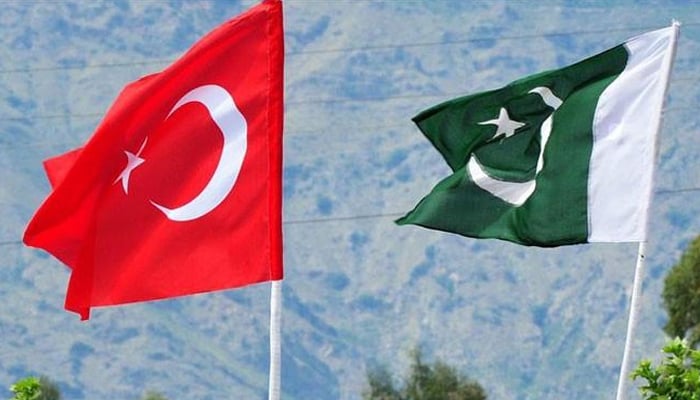India left embarrassed as Turkey closes website pushing anti-Pakistan agenda
The website was named after "Hamevasser Hebrew", a weekly published from Constantinople from 1909-1911
India was once again left embarrassed on Thursday after Turkish authorities closed down a website being operated by India to spread anti-Pakistan propaganda.
This was revealed by Abdul Akbar, a diplomat at the Pakistan Embassy at Ankara.
Taking to Twitter, Akbar disclosed that the website, www.hamsvasser.com has been "closed" by Turkish authorities after it was found defaming Pakistan.
He said the website was named after "Hamevasser Hebrew", a weekly published from Constantinople from 1909-1911.
"The website was part of #IndianChronicles, resurrected by India to defame Pakistan in Turkey," wrote Akbar.
EUDisinfoLab report exposes Indian designs to malign Pakistan
A damning report by the EUDisinfoLab had revealed that more than 750 Indian backed websites, covering over 119 countries have been operational for about 15 years with the sole purpose of undermining Pakistan within the European Union and United Nations, a report on investigative research conducted by the EU DisinfoLab.
The operation has been given a name — the Indian Chronicles.
EU DisinfoLab's investigation revealed that the Srivastava Group had backed the operation, while a leading Indian news agency — Asian News International (commonly known as ANI) — was used to boost it.
This campaign was started in 2005 and is still functional.
India's aim? To discredit countries in conflict with it, with a focus on Pakistan and to some extent, China.
The EU DisinfoLab highlighted the operation's long-term objectives, which included promoting content against Pakistan and China and to consolidate power for India at international forums such as the EU and UN.
To pursue their objective, the operation appeared to support minorities, human rights NGOs, and think-tanks. It also created an illusion of institutional support from European institutions to these minority groups against Pakistan and China.
At the United Nations’ Human Rights Council, the operation was used to arrange side-events and demonstrations in support of minority rights, impersonate extinguished UN-accredited NGOs and use speaking slots reserved to various NGOs whose original missions seem unrelated.
Fake media was created in Brussels, Geneva and across the world and then repackaged and disseminated via ANI and obscure local media networks — at least in 97 countries — to multiply the repetition of online negative content about countries in conflict with India.
-
Security forces gun down 30 terrorists in multiple IBOs in KP: ISPR
-
MQM-P calls for new province in Sindh
-
US report validates Pakistan military edge over India: PM
-
Banned TTP poses serious threat to Pakistan security: UNSC panel
-
CM Afridi clarifies remarks on by-poll after ECP requests army deployment
-
Dubai sees 3.2m Pakistani passengers in 2025 as airport sets new milestone
-
Security forces kill 23 Indian proxy terrorists in KP's Kurram
-
Pakistan to construct island to boost oil exploration: report












